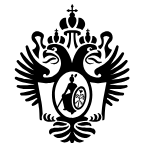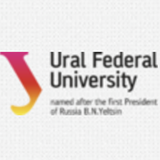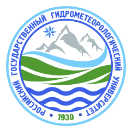Introduction to Russian State Hydrometeorological University
Russian State Hydrometeorological University is the world's first higher education institution in hydrometeorology. It was founded in Moscow in 1930 and moved to St. Petersburg in 1944. Its education and research in the fields of hydrometeorology, oceanography, ecology, etc. have a profound historical accumulation and outstanding achievements, and have trained a large number of professional talents for the world.
Overview
Student size: The school has more than 4,000 students and postgraduates.
Faculty: There are more than 60 doctors, 150 associate doctors and nearly 20 academicians and corresponding academicians of various Russian academies of sciences.
History and establishment time
On July 23, 1930, the school established the Moscow Hydrometeorological Institute based on the geophysical department of the Faculty of Physics of Moscow University. After World War II, it moved to St. Petersburg and was renamed the Leningrad Hydrometeorological Institute. In 1992, it was renamed the Russian State Hydrometeorological Institute. In 1998, it was renamed the Russian State Hydrometeorological Institute. In 2000, it was finally named the Russian State Hydrometeorological University.
School Strength
Teaching Achievements: Over the past 90 years since its establishment, the university has trained many experts and scholars in hydrology, meteorology and oceanography for the Soviet Union, Eastern Europe and third world countries. The degrees it awards are highly recognized internationally, and its academic qualifications are certified by the Chinese Ministry of Education.
Scientific Research Strength: The school is the regional education center of the World Meteorological Organization and one of the leading research centers in the coastal and marine areas of the Arctic region. Research areas include atmospheric and ocean processes, air-sea interactions, weather analysis and forecasting, climate change, environmental research and management, etc., with special attention paid to the Arctic region, including issues related to the protection and development of indigenous peoples' culture and traditions.
International Cooperation: The school is a member of the Arctic University, the BRICS Contact Point for the Prevention and Elimination of Natural Disasters, the holder of the UNESCO Chair in Oceanography, and a member of the UNESCO Joint Unit. For many years, it has maintained cooperation with scientific research and educational institutions in Finland, Germany, the United Kingdom, Spain, Poland, China, Portugal, Italy, Sweden, Denmark, Norway, the United States and other countries.
Institutional Nature
Public research university.
Educational Philosophy
Focus on cultivating students' professional knowledge and practical skills in hydrometeorology and related fields, and is committed to providing students with high-quality education so that they can become globally competitive professionals. At the same time, it emphasizes the research and response to environmental and climate issues, and cultivates students' sense of social responsibility and global vision to promote scientific development and social progress in related fields.
Key laboratories and disciplines
Key laboratories: The school has more than 30 teaching and research offices, a hydrometeorological laboratory with advanced equipment and a hydrometeorological teaching center invested by the United Nations World Hydrometeorological Organization. It has a well-equipped teaching base in the suburbs of St. Petersburg, as well as the Professor Sergei Darafeev oceanographic survey and teaching experimental ship, several catamarans, 3 teaching and research aircraft and several gliders, and an aviation club established on this basis.
Key disciplines: Meteorology, hydrology, oceanography, ecology, information systems and geotechnology, economics and other disciplines are the school's key disciplines. Among them, hydrology, meteorology, and oceanography are in a leading position among Russian universities.
Faculty
The school has 8 colleges, namely, the College of Meteorology, the College of Hydrology, the College of Oceanography, the College of Ecology, the College of Information Systems and Geological Technology, the College of Economics, Society and Humanities, the College of Languages, and the College of Nationalities and Traditional Arts.
Ranking
In the 2010 Russian public university rankings, the school ranked 141st among 1,527 Russian universities and 23rd among 94 universities in St. Petersburg; in 2011, in the monitoring of the Youth Employment Center of Russian Federal Universities, the school ranked 12th among Russian federal universities and 3rd among universities in St. Petersburg.
Expenses
Tuition fees: Depending on the major and academic level, the tuition fees range from 46,000 rubles/year to 70,000 rubles/year.
Accommodation fees: All foreign students live in foreign student apartments, with two undergraduates in one room and one doctoral student in one room. The suite has a bathroom, toilet, and kitchen, and the fee is 1,100 rubles. / month.
Medical insurance: 2700 rubles / year.
Campus
Teaching facilities: The school has a library with nearly 400,000 books, providing students with rich learning resources. In addition, the school has a branch in Krasnodar Territory and Tula City, with good teaching and scientific research infrastructure.
Living facilities: In addition to the international student apartments, the living facilities around the campus are also relatively convenient, providing a guarantee for students' daily life.
-

Peter the Great St.Petersburg Polytechnic University
-

Moscow State University M. V. Lomonosov
-

Bauman Moscow State Technical University
-

St. Petersburg State University
-

Tomsk State University
-

Peoples' Friendship University of Russia
-

Don State Technical University
-

Ural Federal University
-

Moscow Institute of Physics and Technology
-

Kazan Federal University
-

Mesoamerican University
-

Istmo University
-

Mariano Galvez University of Guatemala
-

Regional University of Guatemala
-

Galileo University
-

Francisco Marroquín University
-

Rafael Landívar University
-

University of the Valley of Guatemala
-

University of San Carlos of Guatemala
-

Technological Institute of Tlaxcala Plateau
-

Golfo University
-

Technological University of South Sonora
-

Technological University of Huejotzingo
-

Tizimín Institute of Technology
-

Chilpancingo Institute of Technology

